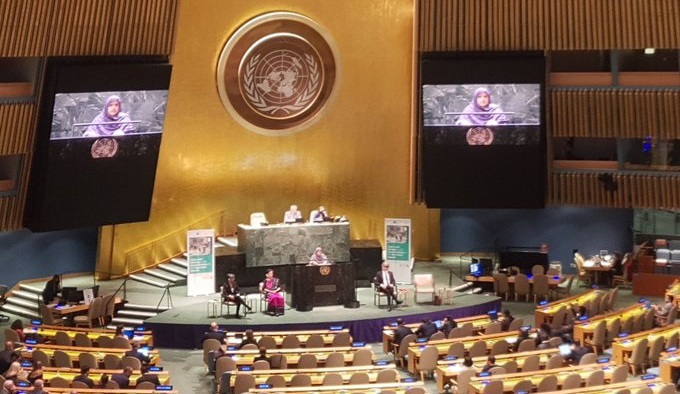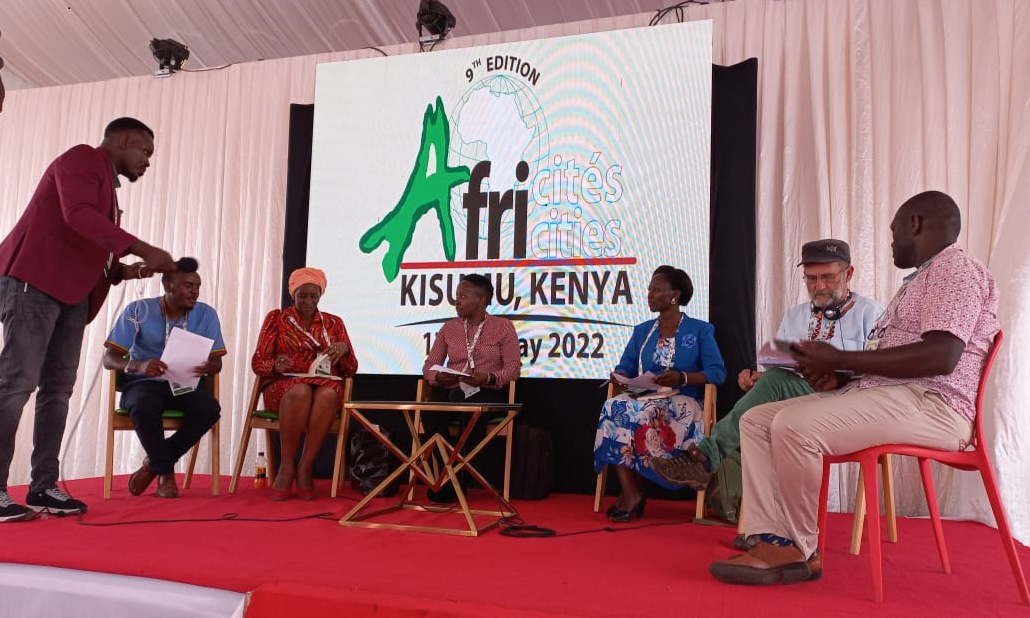Source: Alejandro Kirk, IPS
KARACHI – Many things did not work here in Karachi over the last few days. Meetings started late, were cancelled or changed venue; garbage was strewn all over the place and trash bins nowhere to be found. Just getting into Pakistan was a nightmare and, to some, just impossible.
Yet this was not what mattered. In the end, what mattered was the visible joy over the discovery that “we” from Punjab, Balochistan or Kashmir, “we” from Bangladesh, Sri Lanka, India or the Philippines, are more or less all the same. “I saw humble people, workers from faraway parts of Pakistan, discussing their issues, trying to understand each other’s language. There were no intellectuals there. That sight made me feel that all this effort made sense,” Fahim Zaman, a former mayor of Karachi and member of the organising committee, told TerraViva.
This feeling takes us back to the first WSF in Porto Alegre, Brazil in January 2001, when some 10,000 people heeded the call to organise a counterpunch to the all-mighty World Economic Forum. Like here, the atmosphere was a mix of serious discussion and political carnival.
However, the question that hangs at the end of the three-legged Polycentric WSF 2006 is what comes next. While the WSF is no longer a yearly festival of political losers, neither is it anything else yet. To paraphrase Marx, a new creature is coming to being but is not yet born. Some believe the WSF should stay as it is: a place for exchanging ideas, and, why not, a festival, as International Council member Joel Suárez, from Cuba, told TerraViva in Caracas, or a global organised political force, as Venezuelan President Hugo Chávez called for in front of 20,000 cheering demonstrators in January.
The political atmosphere has changed since the first Forum. Back then, in Latin America, only Venezuela had a progressive government that could more or less identify with the WSF’s aims. Today, this is the case also in Argentina, Bolivia, Brazil, Chile and Uruguay, and in the next few months, possibly Ecuador, México and Perú.
Pakistani activist and author Tariq Ali thinks Latin America is not as far away from Asia as it seems. He proposed Venezuela as a model to stop the vicious cycle of corrupt politics and military dictatorships in Pakistan. But he lashed out — hard – at the core of WSF: NGOs, which he said keep people away from politics.
To Zaman, the Karachi forum is strictly political: “One of the reasons we insisted on this city is because there is a U.S-backed military dictatorship right now, because Karachi is a beautiful city many times raped.” In spite of the city’s image as a violent area, foreigners feel the kindness of its people.
WSF 2005 cost 4 million U.S. dollars, while Caracas in January 2006 had eight million dollars and Bamako, 2.5 million dollars. These are in sharp contrast to the meagre 250,000 dollars that the Pakistani organising committee managed to raise after the Oct. 8, 2005 earthquake. Conspicuous has been the absence in Karachi of WSF’s most renowned “celebrities” and, as Zaman notes – “I’m not complaining” — the failure of WSF’s International Council to respond to Karachi’s calls for help in fundraising.
The forums in Bamako, Mali and Karachi were different from Caracas because they were foundational, as much as Mumbai in 2004 was. This year’s WSF has been a tough experience, leaving many to think hat holding a “polycentric” meeting was not such a good idea after all. But then again, “global” gatherings are becoming nightmarish from the logistical points of view, ineffective politically, and not really global.
“It might have taken away some of the glory of the central event, like Porto Alegre or Mumbai, but it has given grassroots organsations the opportunity to participate,” Zaman said of WSF decentralisation. “This is not about Noam Chomsky or Naomi Klein.”
The WSF, without a structure, has never followed a plan. Perhaps Nairobi, next January, will be the last global WSF, and the “movement” will then redefine itself. Already, sectorial, regional and national forums, such as the Global Forums on Education, Free Software, Borders, Migration, Peace, among others, are taking place this year.
The WSF, whatever shape it takes, is no replacement for political action. But it remains a platform for political thinking and coordination. Among its challenges is how to keep its relative independence — if this ever existed in the first place — and how to include the destitute masses. Only they can make another (better) world possible.


